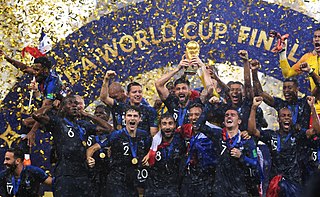
The FIFA World Cup, often simply called the World Cup, is an international association football competition contested by the senior men's national teams of the members of the Fédération Internationale de Football Association (FIFA), the sport's global governing body. The championship has been awarded every four years since the inaugural tournament in 1930, except in 1942 and 1946 when it was not held because of the Second World War. The current champion is France, which won its second title at the 2018 tournament in Russia.

The 2002 FIFA World Cup was the 17th FIFA World Cup, the quadrennial world championship for men's national football teams organized by FIFA. It was held from 31 May to 30 June 2002 at sites in South Korea and Japan, with its final match hosted by Japan at International Stadium in Yokohama.

The Africa Cup of Nations referred to as AFCON, and sometimes as African Cup of Nations, is the main international men's association football competition in Africa. It is sanctioned by the Confederation of African Football (CAF), and was first held in 1957. Since 1968, it has been held every two years, switching to odd-numbered years in 2013.
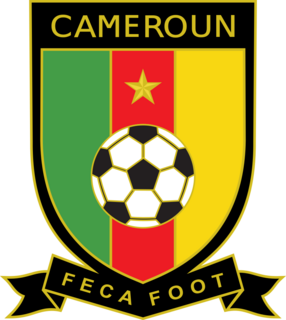
The Cameroon national football team represents Cameroon in men's international football and It is controlled by the Fédération Camerounaise de Football. The team has qualified seven times for the FIFA World Cup, more than any other African team. However, the team has only made it once out of the group stage. They were the first African team to reach the quarter-final of the FIFA World Cup in 1990, losing to England in extra time. They have also won five Africa Cup of Nations and Olympic gold in 2000. The team represents Cameroon both in FIFA and Confederation of African Football (CAF).

The Nigeria national football team represents Nigeria in men's international football. Governed by the Nigeria Football Federation (NFF), they are three-time Africa Cup of Nations winners, with their most recent title in 2013. In April 1994, the Nigerian national football team was ranked 5th in the FIFA rankings, the highest FIFA ranking position ever achieved by an African football team. Throughout history, the team has qualified for six of the last seven FIFA World Cups, missing only the 2006 edition and reaching the round of 16 on three occasions. Their first World Cup appearance was the 1994 edition. The team represents FIFA and Confederation of African Football (CAF).

The Senegal national football team, nicknamed the Lions of Teranga, is the Senegalese national team and is operated by the Senegalese Football Federation. The team made its first appearance at the 2002 FIFA World Cup and made an interesting surprise by beating world champions and European champions France 1-0 in the opening match of the tournament. Senegal is a team that has never faced a big defeat with its biggest defeat just 5-0.

The South Africa national soccer team represents South Africa in men's international soccer and it is run by the South African Football Association, the governing body for Soccer in South Africa. The team's nickname is Bafana Bafana, and South Africa's home ground is FNB Stadium, which is located in Johannesburg. The team's greatest result was winning the Africa Cup of Nations at home in 1996. The team is a member of both FIFA and Confederation of African Football (CAF).

The DR Congo national football team, recognised by FIFA as Congo DR, represents the Democratic Republic of the Congo in men's international football and it is controlled by the Congolese Association Football Federation. They are nicknamed the Leopards. The team is a member of FIFA and the Confederation of African Football (CAF).

The Ivory Coast national football team represents Ivory Coast in men's international football. Nicknamed the Elephants, the team is managed by the Ivorian Football Federation (FIF). Until 2005, their greatest accomplishment was winning the 1992 African Cup of Nations against Ghana on penalties at the Stade Léopold Sédar Senghor in Dakar, Senegal. Their second success came in 2015, again defeating Ghana on penalties in Bata, Equatorial Guinea. The team represents both FIFA and Confederation of African Football (CAF).

The Mali national football team represents Mali in men's international football and is governed by the Malian Football Federation. The team's nickname is Les Aigles. They represent both FIFA and the Confederation of African Football (CAF).

The Guinea national football team represents Guinea in men's international football and it is controlled by the Guinean Football Federation. They have never qualified for the FIFA World Cup finals, and their best finish in the Africa Cup of Nations was runners-up in 1976. The team reached the quarter-finals in four recent tournaments. The team represents both FIFA and Confederation of African Football (CAF).

The Liberia national football team, nicknamed the Lone Stars, represents Liberia in men's international football and is controlled by the Liberia Football Association. Although the nation produced the 1995 FIFA World Player of the Year, George Weah, its football team has never qualified for the FIFA World Cup and has qualified for the Africa Cup of Nations just twice—in 1996 and 2002. It is a member of both FIFA and the Confederation of African Football (CAF).
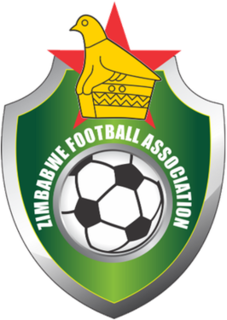
The Zimbabwe national football team, represents Zimbabwe in men's international football and is controlled by the Zimbabwe Football Association (ZIFA), formerly known as the Football Association of Rhodesia. The team has never qualified for the FIFA World Cup finals, but has qualified for the Africa Cup of Nations five times. Zimbabwe has also won the COSAFA Cup a record six times. The team represents both FIFA and Confederation of African Football (CAF).

The Angola national football team represents Angola in men's international football and is controlled by the Angolan Football Federation. The team made its first appearance in 2006 FIFA World Cup, the team's nickname is Palancas Negras, The team is governing body of Football in Angola in the country, The team represents both FIFA and Confederation of African Football (CAF).

Henryk Wojciech Kasperczak is a Polish football manager and a former player who most recently managed the Tunisia national football team.

Otto Martin Pfister is a German football manager and one of Germany's most successful coaching exports, voted Africa's Manager of the Year in 1992. He is formerly the manager of the Afghanistan national team.
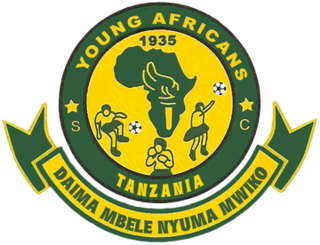
Young Africans Sports Club is a football club based in Jangwani, Dar es Salaam, Tanzania. Founded in 1935, the club play their home games at the Benjamin Mkapa Stadium.

Association football, or soccer, as it is typically called in South Africa, is the nation's most popular sport and South Africa national soccer team is the nation's favourite sports team followed by rugby union and cricket. The governing body is the South African Football Association (SAFA), while the Premier Soccer League is the organisation responsible for running the country's two professional divisions, namely the South African Premier Division and the National First Division. The main cup competitions are the Nedbank Cup, Telkom Knockout, and the MTN 8 Cup.
The African U-20 Women's World Cup qualification is an association football tournament for the under 20 teams, that is held every two years, and serves as a qualifying tournament for the FIFA U-20 Women's World Cup.
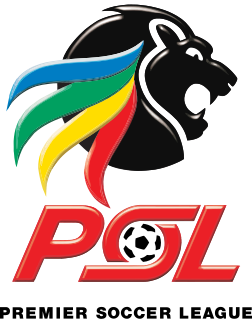
The Premier Soccer League (PSL) is a national sports association responsible for administering the two professional football divisions in South Africa: the DSTV Premiership and GladAfrica Championship.


















